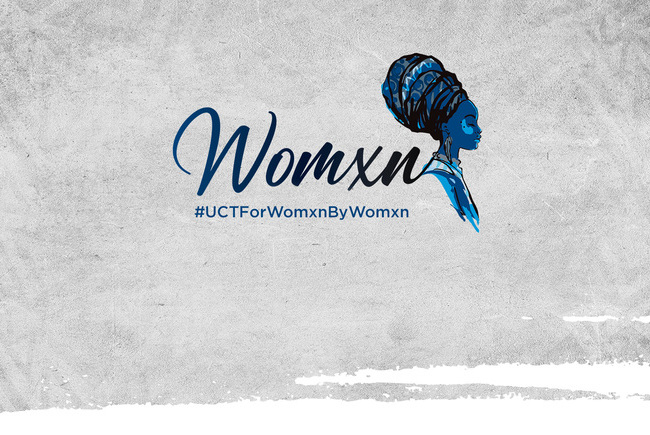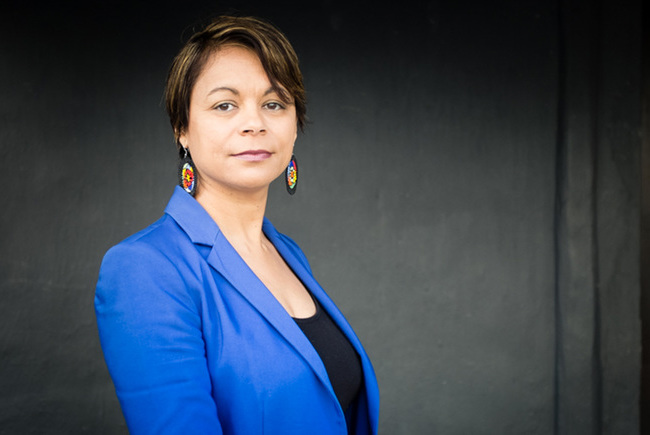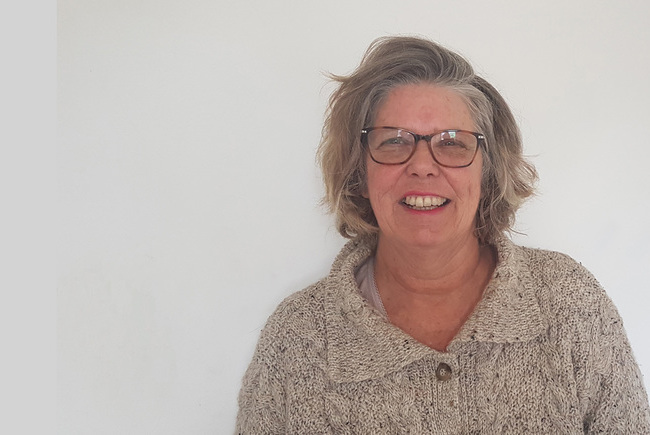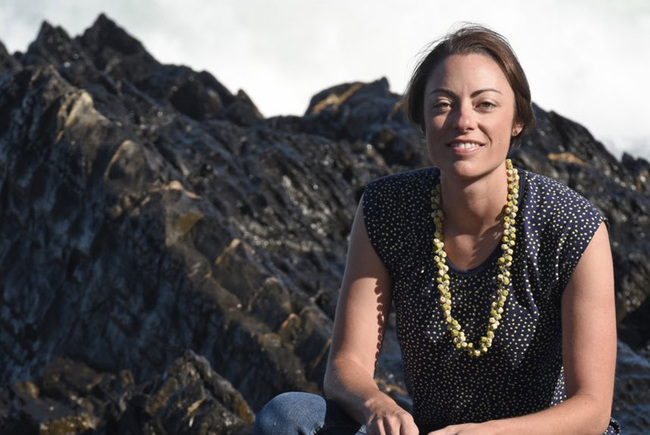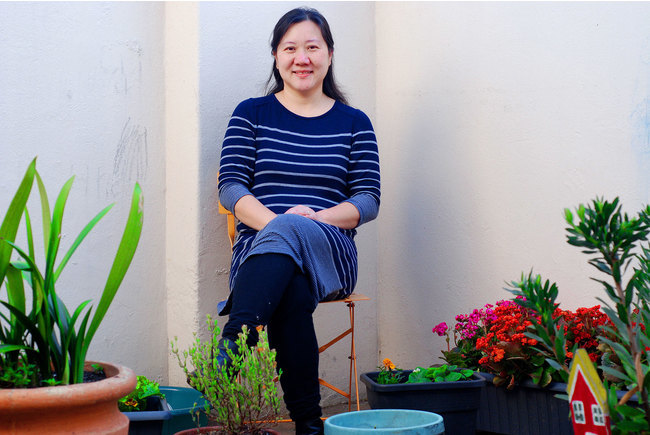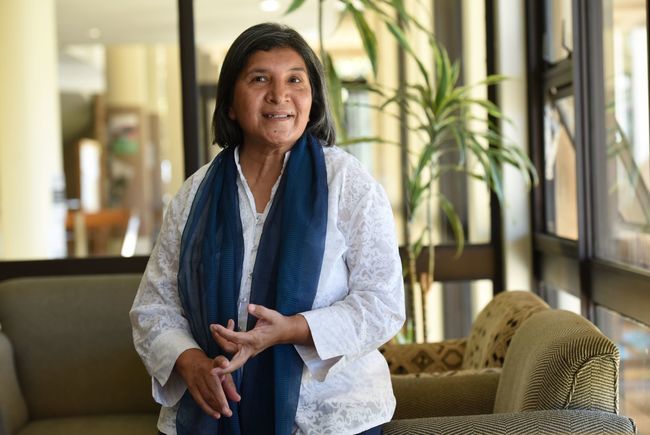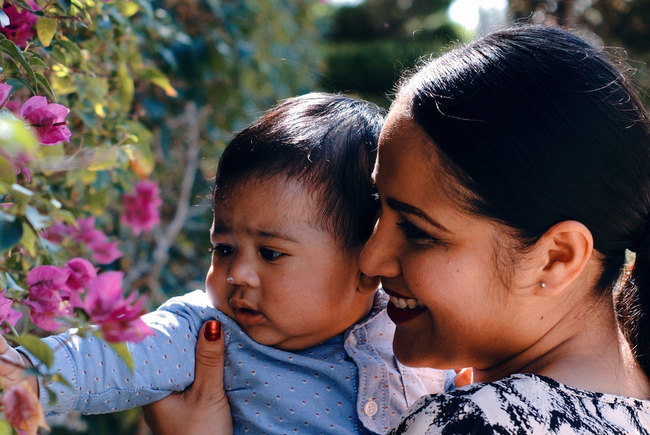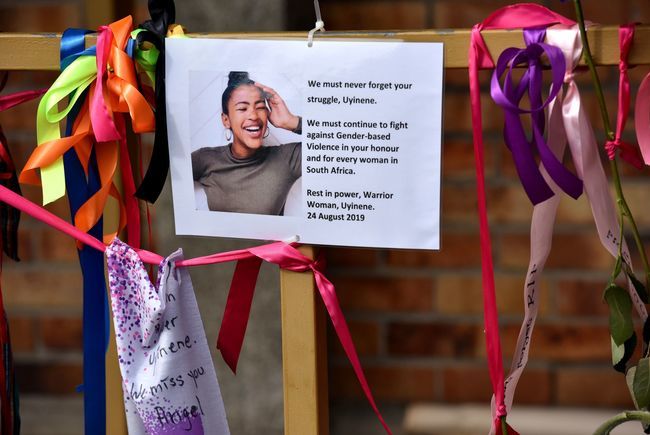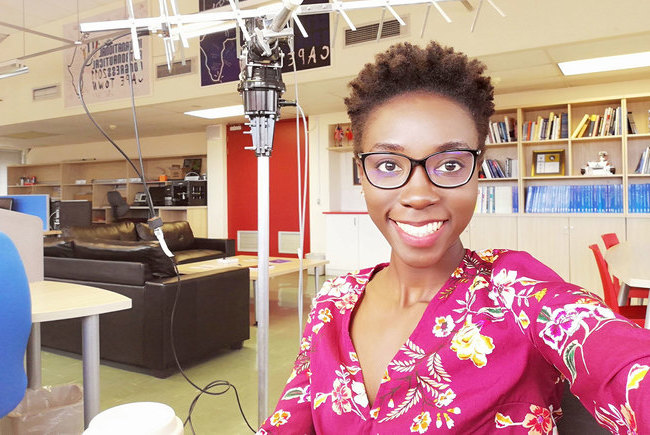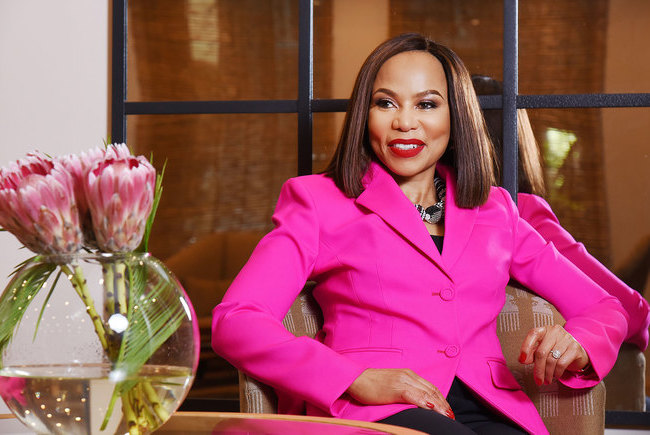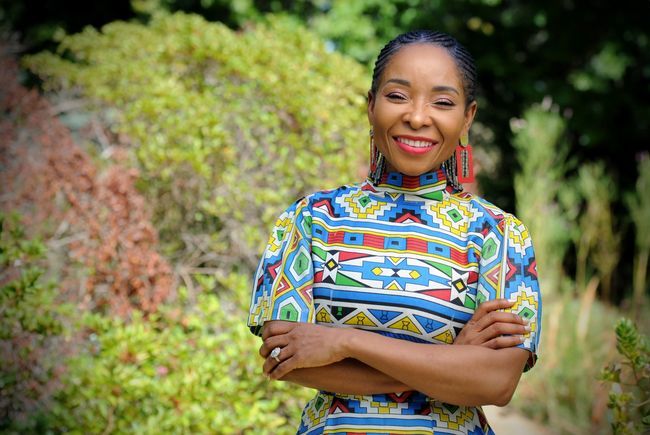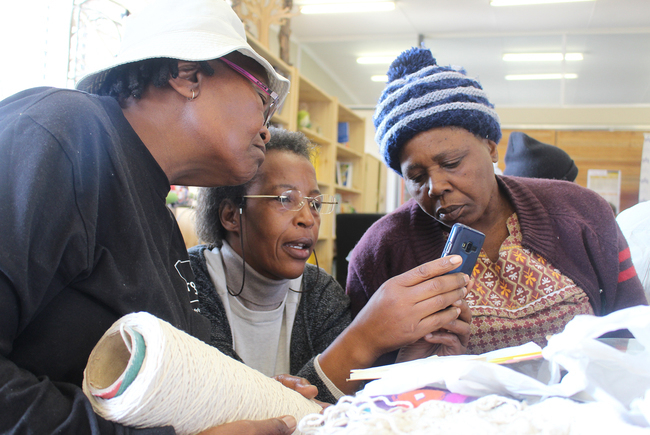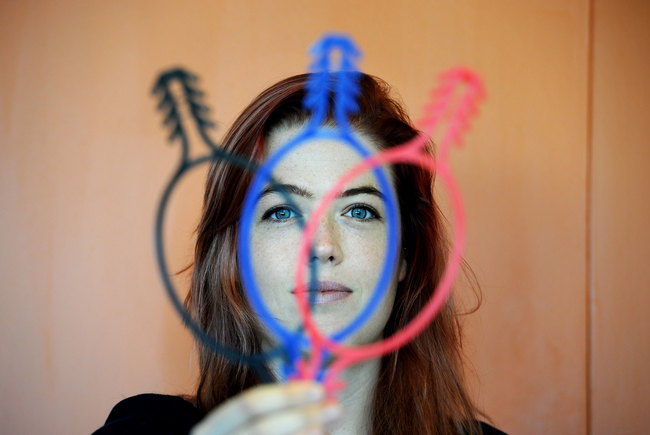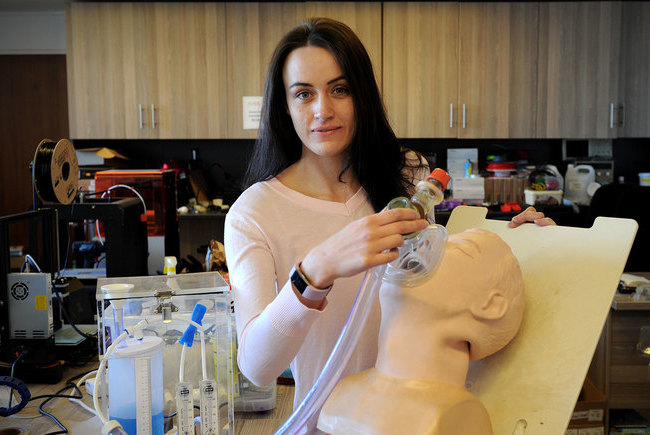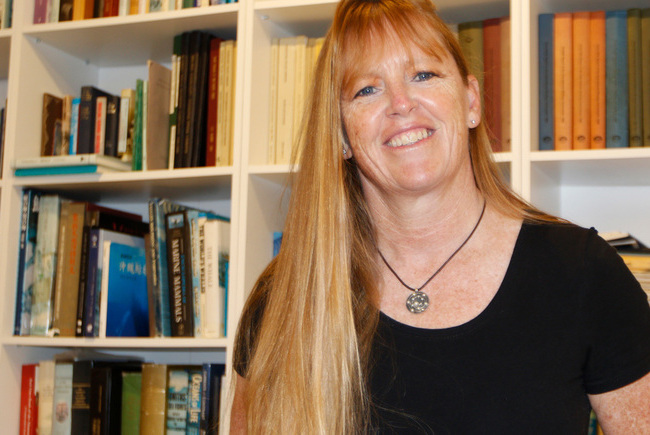Diversify academia, UCT chancellor urges women
14 August 2020 | Story Niémah Davids. Photo Adobe Stock. Read time 8 min.
Universities are well positioned to influence society by promoting gender justice, reaching the goals of South Africa’s democracy and developing innovative research to foster economic growth, said the University of Cape Town’s (UCT) chancellor, Dr Precious Moloi-Motsepe.
Moloi-Motsepe delivered the keynote address at a virtual celebratory Women’s Month event held on Thursday, 13 August, to celebrate women academics at the pinnacle of their fields at the university.
Hosted by UCT Vice-Chancellor Professor Mamokgethi Phakeng, the festivities included a poetry performance by acclaimed South African poet and UCT alumnus Siphokazi Jonas and a musical medley by the Kamva Quintet, a group of all-women UCT alumni.
The event placed a spotlight on UCT’S For Womxn by Womxn research grant recipients. The grants are given to train postgraduates and postdoctoral fellows, with an emphasis on building capacity among black South African women and transgender researchers.
The scholarship was launched by Phakeng in 2018 to accelerate opportunities for women in academia.
“We are rising because humanity needs the resources women can bring.”
“We are not rising as women to make men fall. We are not rising in order to lower standards. We are rising because humanity needs the resources women can bring to help make a more just, equitable and sustainable world,” Phakeng said.
Grant recipients Dr Katye Altieri, Professor Floretta Boonzaier and Professor Janet Hapgood delivered brief updates on the status of their research projects, which focus on developing women in the field of oceanography, altering how the university conducts research on gender-based violence, and contraception and HIV risk for women in sub-Saharan Africa, respectively. Their updates also included presentations from their students.
Restricting success
Moloi-Motsepe commended UCT for doing well in promoting opportunities for women to excel in their areas of expertise and in leadership positions at the university.
“It is important that in our 25 years of democracy … universities anchor their advancement of women in policies and practices.”
“It is important that in our 25 years of democracy, and as we commemorate 64 years since the [women’s] march to the union buildings, that universities anchor their advancement of women in policies and practices.”
She told the audience that feminist scholars like Professor Amina Mama and others argue that patriarchal cultures are embedded in organisational or institutional cultures, which she said alienates and creates a “leaking pipe” that restricts women’s success.
These patriarchal cultures often undermine women’s knowledge and their research, and in many instances under-represent their value because of their limited views and voices in various fields.
“This has implied the need for universities to deliberate on the beneficial opportunities that would manifest if we fostered inclusive academic cultures and communities,” she said.
“That is why I want to draw attention to culture today and what it means to create inclusive institutions and communities.”
Supporting women
Sadly, she noted, only a few women in history have managed to attain success in their careers. While this is slowly changing across all sectors in society, it’s not happening fast enough.
In fact, she said, if sub-Saharan Africa continues on its current trajectory, the World Economic Forum reports that it will take roughly 95 years to close the gender gap.
Moloi-Motsepe, a qualified medical doctor, told the audience that at the beginning of her career she was forced to juggle her work and caring for her family. However, some of her role models in the field either opted not to have families to advance their careers or, if they had children, they were forced to make “difficult and painful trade-offs”.
“In order to flourish as an academic, specialist or expert in any career, it seemed to require deep personal sacrifice.”
“In order to flourish as an academic, specialist or expert in any career, it seemed to require deep personal sacrifice.”
Fast forward 30 years since then, she said that she is shocked that there still isn’t much support for women at institutional level during this make-or-break time in their careers.
“I think this is the reason we celebrate the women who overcome all the odds to achieve professional success.”
Perpetuating stereotypes
A drastic shift in thinking is necessary in order to move forward.
Moloi-Motsepe said the notion that childcare solely rests on the shoulders of women should be eradicated fast.
“This hinders a woman’s choices in life by making them choose between having a family or having a professional life. It also perpetuates stereotypes.”
She noted that the idea that women are viewed as the primary caregiver in the home impacts men. This, she said, is a less acknowledged phenomenon. But men, she added, are starting to feel like they have been “robbed” of the role as caregiver in the home.
“Creating inclusive spaces for men to embrace other facets of their identity could be a solution to gender-based violence as men and women become equal partners in their household.”
Diversifying academia
Moloi-Motsepe said more women need to advance in the fields of natural science, technology, engineering and mathematics. This will help diversify academia.
“In this new era, these fields are shaping our societies and playing a leading role in the global progress towards sustainable socio-economic goals.”
In doing so, the world will begin to shift and “traditional groupings” of countries as either developed or developing will be broken down. Instead, nations will be analysed for their creativity and innovativeness and how they solve the world’s most pressing challenges.
“My hope is that UCT continues to build on this culture of collaboration, where mentors and leaders nurture the ambitions of their students.”
“It would be impossible to create this new knowledge economy without an inclusive culture and [proper] support systems. My hope is that UCT continues to build on this culture of collaboration, where mentors and leaders nurture the ambitions of their students by recognising the unique challenges and circumstances they each face,” she said.
‘You are because of others’
In her first public address as chairperson of UCT’s Council, Babalwa Ngonyama said she is proud and honoured to be part of the team leading Africa’s best university.
Ngonyama lauded Phakeng for nudging women academics in the right direction. She also thanked her for encouraging women at UCT to adopt the bravery and determination of Rahima Moosa, Lilian Ngoyi, Helen Suzman, Sophia Williams-De Bruyn and thousands of other women marchers who descended on the union buildings on that iconic day in 1956.
“[By introducing these scholarships] the vice-chancellor is nudging us to adopt the bravery of those 1956 women and to rewrite the narrative and close those inequalities,” she said.
With the launch of the For Womxn by Womxn scholarships, Ngonyama said it helps UCT to rethink its views on gender in South Africa and provides new insights into “ourselves and others in different communities”.
“This speaks to the phrase we’ve all come to know so well here in South Africa – you are because of others. We are women because of other women.”
 This work is licensed under a Creative Commons Attribution-NoDerivatives 4.0 International License.
This work is licensed under a Creative Commons Attribution-NoDerivatives 4.0 International License.
Please view the republishing articles page for more information.
Women’s Month at UCT
UCT’s virtual Women’s Day event
Two years after UCT Vice Chancellor Professor Mamokgethi Phakeng launched the For Womxn by Womxn scholarships for the advancement of women in academia, the three grant recipients, Dr Katye Altieri, Professor Floretta Boonzaier and Professor Janet Hapgood delivered brief updates on the status of their research projects. Speaking at the UCT Women’s Day virtual event, For Womxn by Womxn, the three researchers updated the UCT community on their research on oceanography, gendered and sexual violence, and contraception and HIV risks for women in Subs-Saharan Africa.
UCT women in the news
UCT women in technology
UCT News has used the opportunity of Women’s Month to focus on women in technology. Here we feature interviews with some of the University of Cape Town’s brightest innovators who are using tech to advance our understanding of the world, to combat the COVID-19 pandemic and build resilient communities in the face of other health, social and economic challenges.
UCT women teaching excellence
The Distinguished Teacher Award is the highest accolade awarded to teaching staff at all levels within the university. Through the award, the University of Cape Town acknowledges the primary place of teaching and learning in the university’s work. This year, three of the four recipients are women.







